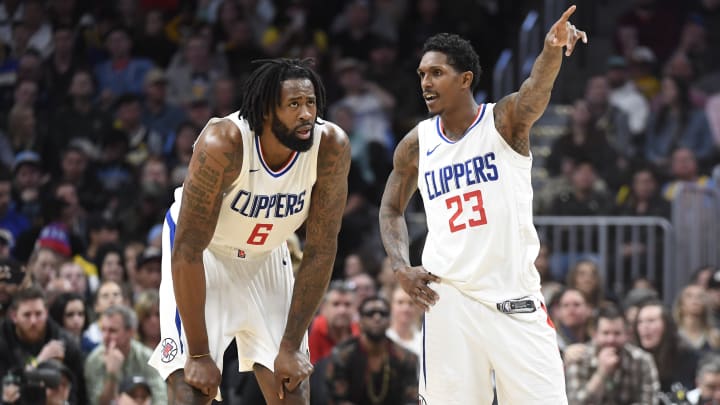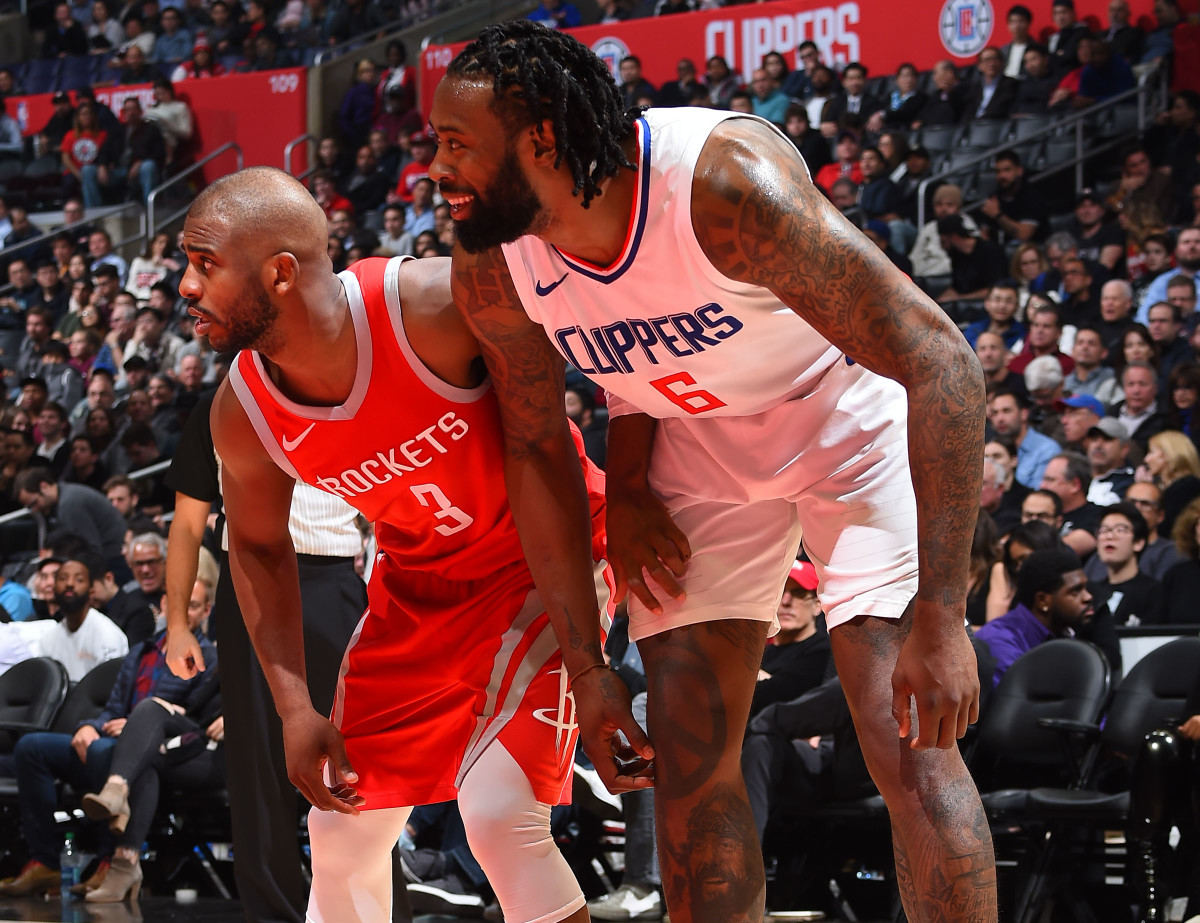DeAndre Jordan and the Last Leg of Lob City

Five years ago, Blake Griffin declared an end to the municipality he had created. "Lob City," he told ESPN, "doesn't exist anymore."
This edict came only a year into Chris Paul's tenure with the Clippers, and thus only a year after Griffin had accidentally spoken Lob City into existence. The video that spawned it is an immortal piece of NBA lore: A live look at Griffin and DeAndre Jordan as they processed the Paul trade in real time. "Who'd they give up again?" Jordan asked into his phone. Griffin responded in between laughs: "We don't care!"
NBA Power Rankings: The Red-Hot 76ers Are Surviving Life Without Joel Embiid
Griffin's renouncing of the name was an effort to convey a certain seriousness—fitting for someone who had spent a year reconciling the idea of Paul with his exacting ways. Paul is nothing if not serious. And for a time, the Clippers were, too. A franchise without a single 50-win season in its history pulled off five in a row as a matter of course. Griffin didn't know then where that team would go, only that they were searching for a more organic, pervasive identity.
Paul would leave of his own volition. Griffin would be traded not months after the team crowned him a "Clipper for life." And that search for who the Clippers are would resume on entirely different terms. Some of the team's biggest decision points over the past half-decade weighed how to best use the their marginal assets and the acceptability of luxury tax spending. Such is the privilege of a franchise with stars in-hand. Employing players like Paul and Griffin gives an entire organization its focus. It makes something like the prospect of re-signing DeAndre Jordan in free agency—a reality the Clippers may need to wrestle with this summer—a much more conclusive exercise.
This is why the formal unincorporation of Lob City matters. An over-the-cap team featuring two other stars could pay Jordan whatever was necessary, provided they were willing to accept the tax bill that followed. A fringe playoff team without that kind of star power must proceed with greater care. Should he decline his player option for next season, Jordan's next contract could start at upwards of $30 million a year—just bulky enough to cause some real inconvenience.

What Jordan does on the floor is inarguably valuable; any team that can pencil in an outstanding rebounder, high-level finisher, and effective defender for 82 games at center is better for it. Yet Jordan is at his best when he can augment and benefit from other elite talent. The very heart of Lob City was the idea that an elite playmaker could make Jordan better, and vice versa.
And for as pleasant a surprise as this year's Clippers have been, nothing about their play this season alleviates the difficulty of the decisions to come. Letting Jordan walk would leave the team holding the bag on a roster full of veterans without any kind of clear direction—a tough pill after such a fun season. Bringing him back would give this plucky group another crack at the playoffs, though it might delay the arrival of the next Clippers team of consequence. Success in the NBA is sometimes less about who you pay than when you pay them.

Building a new, lasting core from scratch is one of the hardest things for a team to do. In this case, the returns on Paul and Griffin were actually pretty tremendous under their respective circumstances. Lou Williams and Tobias Harris have managed to carry a functional offense—one that has outscored 22 other teams in spite of some considerable injuries. Yet assuming Jordan returns, where is the growth potential with this team? How many players on the Clippers' current roster are even likely to improve in some notable way? There is a fundamental difference between a "new" team and an "up-and-coming" one; just because the Clippers turned over their roster does not grant them any kind of trajectory.
Kawhi Leonard and the Limits of Spurs Culture
All of which lends this Clippers season its escapist feel. A team prepared for the worst—first in dealing Paul, then in suffering injury upon injury—is still alive in the playoff race after 77 games. Williams has been a whirlwind. Harris could stick around L.A. for a while yet. There are success stories from Montrezl Harrell to Tyrone Wallace, and a sense of good will for a team that has improbably held it together. But at some point the dream will end, whether by a first-round exit or the cold numbers game of a tough Western Conference.
It's then that the Clippers will need to suss out some new identity. Team president Lawrence Frank told SI's Ben Golliver that the front office went into the season "wanting to redefine who a Clipper is." In the next few months, they'll have the chance to make it clear.
